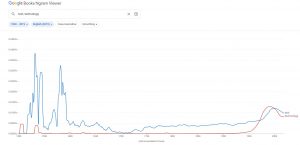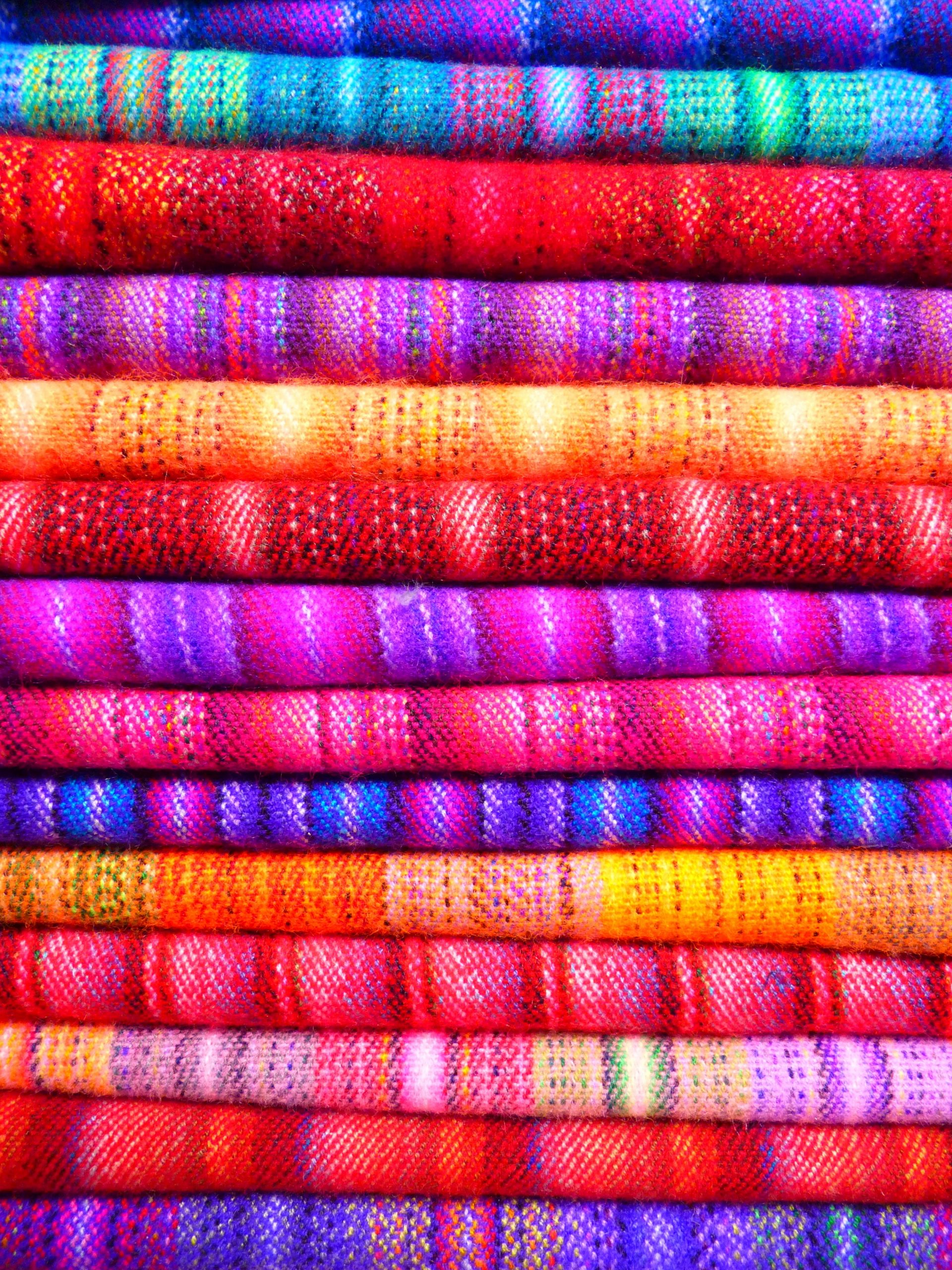Activity 1.4: Defining Terms
1. What do the words “text” and “technology” mean to you?
text: a string of letters chosen to create a word that carries a specific meaning; or, a string of words that convey a meaning larger than one word.
technology: a tool with one or several purposes; something that helps the user do something.
2. Listen to The Word Guy’s episode on Internet Age Words
In this episode, Berkowitz breaks down the meaning of words such as viral, computer, cloud and others, and reflects on the way technological change leads to linguistic change. Can you think of other words that might have been updated based on technological advancements? Try to keep an informal record of such words, they’ll probably come handy during the course.
My list:
- tbd
3. Search the OED for formal definitions and etymology
text:
1a. The wording of anything written or printed; the structure formed by the words in their order; the very words, phrases, and sentences as written.
1b. Applied vaguely to an original or authority whose words are quoted. Obsolete.
1c. figurative or in allusive use.
d. The wording adopted by an editor as (in his or her opinion) most nearly representing the author’s original work; a book or edition containing this; also, with qualification, any form in which a writing exists or is current, as a good text, bad text, corrupt text, critical text, received text.
2. esp. The very words and sentences as originally written:
2a. in the original language, as opposed to a translation or rendering.
2b. in the original form and order, as distinguished from a commentary, marginal or other, or from annotations. Hence, in later use, the body of any treatise, the authoritative or formal part as distinguished from notes, appendices, introduction, and other explanatory or supplementary matter.
2c. That portion of the contents of a manuscript or printed book, or of a page, which constitutes the original matter, as distinct from the notes or other critical appendages. In first quot. figurative.
3a. spec. The very words and sentences of Holy Scripture; hence, the Scriptures themselves; also, any single book of the Scriptures. Obsolete.
3b. A copy of the Scriptures, or of a book of the Scriptures; spec. a volume containing the Gospels. Obsolete exc. Historical. (See also textus n.)
4a. A short passage from the Scriptures, esp. one quoted as authoritative, or illustrative of a point of belief or doctrine, as a motto, to point a moral, or esp. as the subject of an exposition or sermon.
4b. A short passage from some book or writer considered as authoritative; a received maxim or axiom; a proverb; an adage; in later use, esp. one used as a copybook heading. Now rare.
4c. figurative. The theme or subject on which any one speaks; the starting-point of a discussion; a statement on which any one dilates.
5. Short for text-hand n. Also attributive. See also church text n., germane adj. and n. text. chapel-text, an elaborated kind of church-text.
6. The words of a song; = testo n.
technology:
1. A discourse or treatise on an art or arts; esp. (in later use) a treatise on a practical art or craft. Obsolete.
2. The terminology of a particular art or subject; technical language or nomenclature. Obsolete.
3. The systematic treatment of grammar. Obsolete. rare.
4a. The branch of knowledge dealing with the mechanical arts and applied sciences; the study of this.
4b. The application of such knowledge for practical purposes, esp. in industry, manufacturing, etc.; the sphere of activity concerned with this; the mechanical arts and applied sciences collectively. (Frequently with modifying word, as alternative technology, applied technology, food technology, information technology, space technology: see the first element.)
4c. The product of such application; technological knowledge or know-how; a technological process, method, or technique. Also: machinery, equipment, etc., developed from the practical application of scientific and technical knowledge; an example of this. Also in extended use.
5. A particular practical or industrial art; a branch of the mechanical arts or applied sciences; a technological discipline.
4. Graph the Usage of the terms over time with Google Ngram Viewer

The word ‘text’ reached its peak in 1532, and again in 1582. The word ‘technology’ reached its peak in 1505, and again in 1582. Both petered out significantly after their second peaks, but began to ramp up again between 1950-1970.
5. Consider the following questions or come up with questions of your own:
Questions to consider:
- What does the etymology of these words suggest about their inherent meanings?
- What, for example, does textiles have to do with text?
- How is technology related to text?
- What does teche (teaching) have to do with technology?
- How has the usage of these terms evolved over the centuries? Consider, for example, how the term technology is used at present by ministries or departments of education. Consider also why many scholars and performers speak of performance (dramatic, filmic, and so on), graphic art, etc., as “text.”
- Can you identify historical events that might have influenced changes in the usage of these terms over time as evidenced in the Google Ngram search?
My notes & responses (in no particular order):
- ‘texts’ weave together smaller things (letter, words, ideas) into greater meanings, just as a textile weaves together smaller or various material into something greater and more complex
- interesting that a now obsolete definition of ‘technology’ was essentially another word for ‘jargon’ (The terminology of a particular art or subject; technical language or nomenclature. Obsolete.)
- most early meanings of technology had to do with terminology (words) and treatises (discourse or written)
- ‘text’ and ‘technology’ share a lot in common when you start to dive into the etymology. They both convey meaning between the creator (writer, developer, speaker, etc) and the receiver (reader, listener). Similarly, performance (dramatic, filmic, etc.) and graphic art, etc., also convey meaning between the creator (or performer) and the receiver (audience, viewer, etc.).
- Some of my most loved ‘texts’ showed up throughout the examples for early usage of both words: Sir Gawain and the Green Knight, Piers Plowman, Chaucer, and Shakespeare of course.
- What does teche (teaching) have to do with technology?
- teche [middle English – 1500s)
- I. To show, etc. [Old English or early Middle English
- II.To show by way of information or instruction. (Now the leading sense.)
- Inventions: Printing press: ~1440; Personal Computer: 1974;
- Historical events in England: Henry VIII marries Anne Boleyn in 1530s (the six wives of Henry VIII); creation of the Church of England and the separation from Rome; banning/burning of Lutheran books; widespread destruction of Catholic churches; Queen Elizabeth, a large patron of the Arts, ascends the throne.
